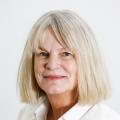
Oxfordshire boasts some of the country's most beautiful towns and villages, but as one of the oldest counties, they don't always have the easiest names to pronounce.
Here’s some Oxfordshire place names that even the locals aren't sure how to say.
Bicester
Online language tutors Preply conducted a study to reveal the most mispronounced UK place names.
Biss-ter made the top 10 along with towns such as Godmanchester in Cambridgeshire and Cholmondeley in Cheshire.
But at Bicester Village you're likely to hear it pronounced by the many overseas visitors as By-cester.

Secret Oxford lingo that you’ve no chance of getting right if you haven't lived or studied in the city.
Magdalen Fellow in English Professor Simon Horobin explained Magdalen takes its name from the Greek Magdala, the town on the Sea of Galilee from which Mary Magdalen originated.
In the Middle Ages this word’s pronunciation became anglicised to “maudlin” – with the spelling maudlyn.
The medieval pronunciation has been retained in the name of the college, even though the spelling reflects the Greek word.

Cherwell
Problems pronouncing Cherwell - or Charwell - lead to problems saying the district council, colleges and everything else that takes its name from the river.
John Speed's 1612 map of Oxford in the Bodleian Library spells it: The River Charwelle.
John Leland called it Charwell in his 16th century description of Banbury.
But nowadays it's spelt Cherwell and there's a split over how to say its name.
Cherwell is pronounced Charwell, particularly near Oxford, and Cherwell in north Oxfordshire.
The village of Charwelton in Northamptonshire is named after the river, suggesting this split has been happening for a long time.
Begbroke
Is the second part pronounced brook or broke?
Cutteslowe
Is it Cuts-Low not Cut-Ess-Low?
Osney
Is it Ohs-ney or Ozzney?
Cogges
Cogges is mentioned in the Domesday Book of 1086. British History Online says the parish, which is close to Witney, "lies mainly on the Oxford Clay, rising to 110metres in the centre of the parish between High Cogges and Newland".
It says this may have suggested the form of a wheel for which the Old English word is cogg - "giving the parish its otherwise unintelligible name," it says.
Cropredy
The village is famous for its festival organised by 60s folk rock pioneers Fairport Convention and again has Anglo-Saxon origins.
It is recorded in the Domesday Book and reportedly the name comes from the Old English words cropp (a hill) and ridig (a stream).
It's generally agreed it's krop-ruh-dee but you hear a lot of calling it “crop ready” or “crop reedy”.
Ewelme
Among the hardest places to pronounce on the list.
Common mispronunciations of this Oxfordshire village include 'ew-ell-me' - but the correct way is 'ewe-ulm'.
The E on the end is completely silent.
Kingston Bagpuize
The hardest place to pronounce on the list.
Is it Kingston Bagpuss, Kingston Bagpipes?

Apparently, the name Kingston Bagpuize is derived from the village's original name Kingston plus the surname of Ralph de Bachepuz, a Norman nobleman from Bacquepuis in Normandy who aided William of Normandy in the Norman conquest of England in 1066.
And that leads to the correct pronunciation Kingston Bag-pyooz.
Wytham Woods
First recorded as Wihtham around 957, the name comes from the Old English for a homestead or village in a river-bend.
John Rocque's map of Oxfordshire of 1761 shows Wytham as Whiteham.
Now the accepted pronunciation is Wyt-um - so don't make that mistake again.



Comments: Our rules
We want our comments to be a lively and valuable part of our community - a place where readers can debate and engage with the most important local issues. The ability to comment on our stories is a privilege, not a right, however, and that privilege may be withdrawn if it is abused or misused.
Please report any comments that break our rules.
Read the rules hereLast Updated:
Report this comment Cancel